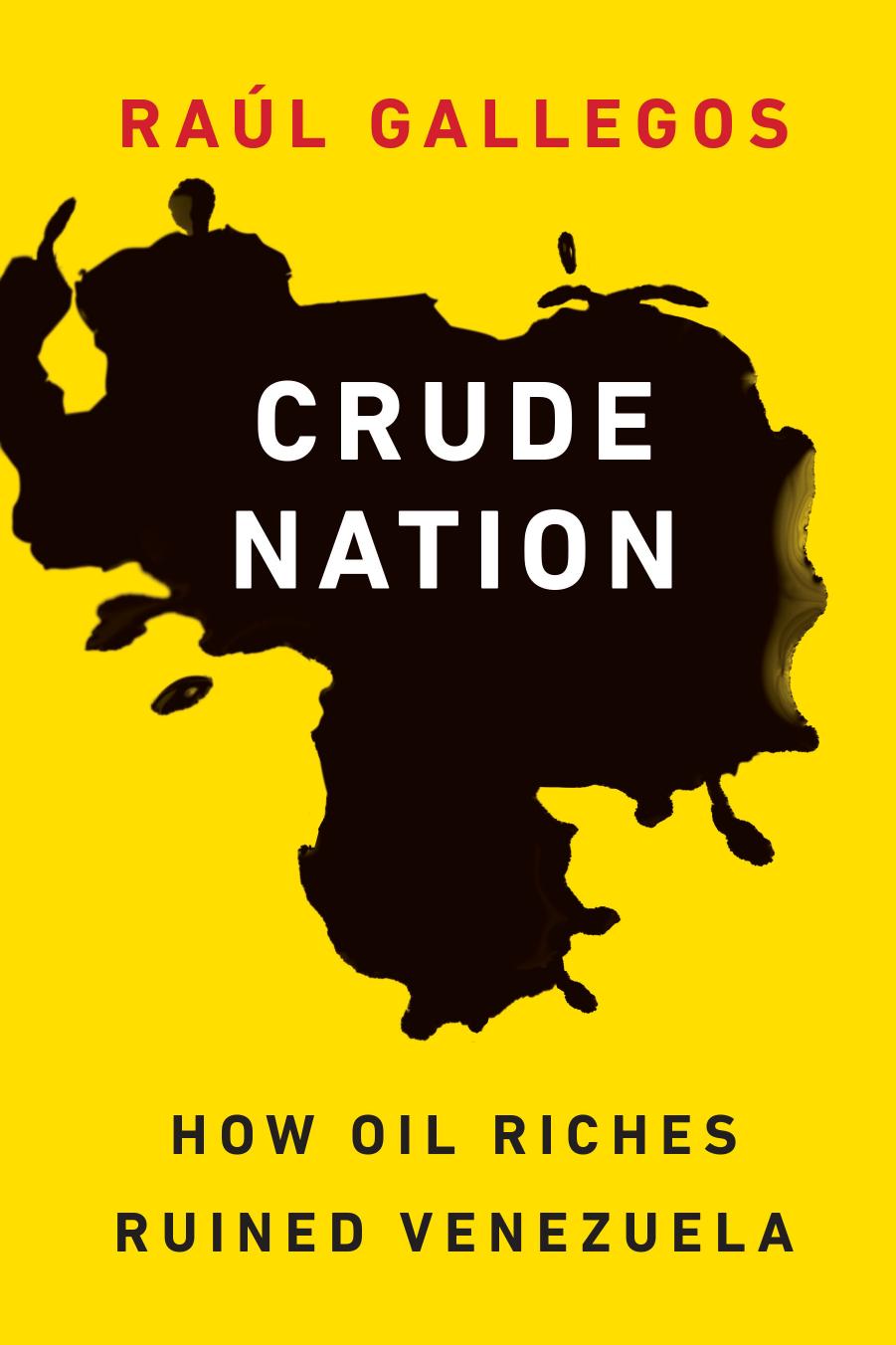Crude Nation: How Oil Riches Ruined Venezuela by Raúl Gallegos

Author:Raúl Gallegos [Gallegos, Raúl]
Language: eng
Format: azw3, pdf
Tags: POL023000 Political Science / Political Economy, BUS069020 Business & Economics / International / Economics, POL057000 Political Science / World / Caribbean & Latin American
ISBN: 9781612348582
Publisher: Potomac Books
Published: 2016-10-01T04:00:00+00:00
Since oil riches changed the country’s entrepreneurial spirit in the early 1900s, Venezuela’s strongest economic sectors, aside from the oil business, have stayed largely the same. Venezuela is a service-heavy economy where industries such as retail, real estate, telecommunications, and banking make up nearly half of the gross domestic product (GDP),7 while manufacturers like Ron Santa Teresa, car assembly plants, and food producers amount to little more than 13 percent of GDP. In fact, under Chavismo manufacturing has lost importance in the economy, while the weight of imports doubled to 50 percent of GDP in the fourteen years through 2012.8 Chavismo and previous governments never consistently tried to diversify the economy away from the oil business. The Chávez government has sold some companies U.S. dollars at preferential rates, doled out juicy government contracts to the well-connected, and forced banks to lend cheaply to favored sectors, but most companies were left to fend for themselves for more than a decade in an increasingly tough economic climate. Manufacturing also lost importance in the Venezuelan economy under Chávez, partly because the government seized scores of companies and ran most of them into the ground, and partly because excessive regulations made the economy less stable. Stringent regulations as well as price and capital controls cause many companies to lose money and, as such, make companies more dependent on the government’s good graces to stay in business. Venezuela has become a place where the strongest companies survive, those who are the most politically loyal to Chavismo profit handsomely, and the rest learn to adapt to new and increasingly complex problems; otherwise they fail. And too many of them fail. The National Council of Commerce and Services, or Consecomercio, a commerce trade group, reported in early 2016 that fifty-eight thousand companies—most of them small—closed their doors in 2015 alone, because they could no longer operate in Venezuela’s heavily regulated economy.
Download
Crude Nation: How Oil Riches Ruined Venezuela by Raúl Gallegos.pdf
This site does not store any files on its server. We only index and link to content provided by other sites. Please contact the content providers to delete copyright contents if any and email us, we'll remove relevant links or contents immediately.
The Meaning of the Library by unknow(2565)
Six Billion Shoppers by Porter Erisman(2296)
Why Nations Fail: The Origins of Power, Prosperity, and Poverty by Daron Acemoglu & James Robinson(2289)
No Time to Say Goodbye(2113)
Red Notice by Bill Browder(2070)
The Economist [T6, 22 Thg9 2017] by The Economist(1925)
Currency Trading For Dummies by Brian Dolan(1921)
Thank You for Being Late by Thomas L. Friedman(1766)
Bitcoin: The Ultimate Guide to the World of Bitcoin, Bitcoin Mining, Bitcoin Investing, Blockchain Technology, Cryptocurrency (2nd Edition) by Ikuya Takashima(1696)
Amazon FBA: Amazon FBA Blackbook: Everything You Need To Know to Start Your Amazon Business Empire (Amazon Empire, FBA Mastery) by John Fisher(1567)
Coffee: From Bean to Barista by Robert W. Thurston(1542)
The Future Is Asian by Parag Khanna(1480)
The Great Economists by Linda Yueh(1453)
How Money Got Free: Bitcoin and the Fight for the Future of Finance by Brian Patrick Eha(1423)
Grave New World by Stephen D. King(1418)
Pocket World in Figures 2018 by The Economist(1414)
Capitalism Without Capital: The Rise of the Intangible Economy by Jonathan Haskel(1398)
The Sex Business by Economist(1382)
Cultural Intelligence by David C. Thomas(1286)
